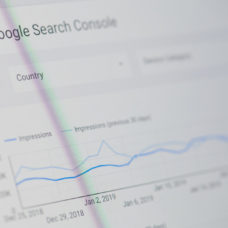Big Data was not created to be big by premeditation.
Instead, it is a logical result of the accumulation of data related to consumer habits, tastes, and expectations, as well as the growing sharing of this data, plus worldwide communication, media storage, and entertainment.
Big Data manages a lot. But whatever your level of technological prowess, the global system of networks and data centers that make up Big Data likely manages something vital to you.
Facebook, Google, and other big companies indeed rely on certain types of predictive algorithms to work through their massive amounts of data. These are AI systems that require technical and financial resources that small businesses can’t typically afford.
While often associated with large companies, Big Data can also benefit small businesses that want to tap into new development opportunities.
And these businesses don’t need to make substantial investments in infrastructure or human resources to do so. Various solutions make Big Data accessible to almost any business. This is the “how” question.
On the other hand, for the “why” question, Big Data can be integrated into BtoC and BtoB strategies to help improve your small business by addressing the following key challenges.
5 Ways Big Data can Improve Your Small Business
1. Customer UX (User Experience)
Big data reveals information about customers and their shopping habits. You can improve your small business by using the said information to understand customer behavior and ensure a better experience for them through marketing, sales, and customer service.
Offering a personalized experience for customers provides a competitive advantage to small businesses that translate into revenue and growth.
In a research report, the Boston Consulting Group (BCG) expects businesses that create a personalized customer experience to increase their revenue by 6 – 10%.
What’s one example of Big Data making this a possibility? We’re sure you’ve seen ads for Squarespace, Wix, and more. These tools can help you build attractive web spaces for your business, no matter how small.
2. Predictive Marketing
Understanding the behavior of customers now will help you anticipate the evolution of their needs and tailor effective marketing campaigns accordingly.
If traditional marketing strives to understand consumers to bring them the product that best meets their needs, predictive marketing, thanks to Big Data, goes beyond product or service recommendation.
Predictive marketing is about knowing customers’ desires before they even think about it, and to propose a personalized service that evolves according to the behavior of the customer.
There are web-based tools you can use to do just that. Check out what’s trending on Buzzsumo concerning your products and services to see who’s attracting the most attention in your neck of the woods.
3. Product Innovation
The two first points above converge to make the often risky endeavor of product innovation, well, less risky.
Big Data can also be used not just to improve your small business but also to enhance your brand’s existing products and services. All that while innovating to create new ones to meet future needs.
User data analytics (knowing which features make customers tick and which don’t) allow businesses to improve product adoption and accelerate innovation. If you use a web page for part of your business, check out Google Analytics to see which sections of your page are attracting the most attention.
Tech companies can design, develop, and roll out new attractive products at short periods of time thanks to Big Data.
4. Decision Making Process
Big Data is changing the paradigm of decision making and can bring much more than Business Intelligence in this regard.
Traditional decision-making processes require internal expertise. However, having a dedicated BI center is not within reach of all businesses, but if they take advantage of Big Data, it is accessible.
For example, Big Data, via the Internet and advanced search engines, allows you to seek out your competitors. From there, you’re able to understand the best ways to stand out to consumers that may have otherwise just stuck with the competition.
A data-centric company is a company that knows how to fructify data and use it to manage every aspect of their business.
Big Data enables smaller companies to make informed decisions and choose the right investment to create more wealth.
5. Get Ready for Insights-Driven Business
Competition is getting increasingly intrusive, and you should make use of your user data before someone else does!
The majority of business leaders plan on taking advantage of Big Data, and you should be one of them if you don’t want to be left behind.
In a study entitled Big and Fast Data: The Rise of Insight-Driven Business, 75% of business leaders said they would be using Big Data to transform, reorganize, and restructure their businesses.
Per the report, 64% of respondents said non-traditional players were getting into their territory, and 53% expect increased competition enabled by data.



















Comments (0)
Most Recent